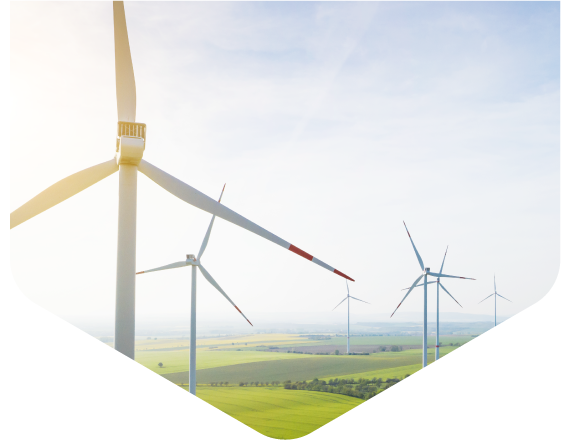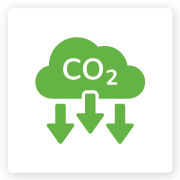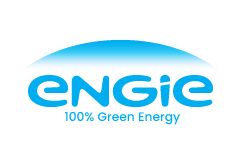Offset Your Footprint
Achieve Your Net-Zero Goals

Offsetting Your Carbon Footprint
In a world that’s so dependent on fossil fuels, it’s difficult to get your carbon footprint to absolute zero. That’s why we opt for net-zero instead, offsetting the emissions we do release so there’s no net increase. Supporting projects that remove greenhouse gases from the atmosphere is the best way to offset your business’s remaining emissions. We’ll provide the information and support you need to take ownership of your residual carbon footprint.

Carbon Credits
Carbon credits are a popular way of offsetting carbon emissions. One carbon credit equals one tonne of CO2 removed from the atmosphere via a carbon offset project e.g tree planting. At Tariff.com, we take it one step further and source our carbon credits from woodland creation projects.
We’ll offer your business verifiable Woodland Carbon Units (WCUs) to offset your residual emissions. Supporting these projects means your remaining emissions will be accounted for, so your business can truly call itself net-zero.
Learn MoreBiodiversity Credits
If your business is looking to do something positive for the planet, biodiversity credits are the perfect solution. Taking a net gain approach to land management, our biodiversity credits are designed to leave the natural environment in a better state than we found it.
Using habitat features as a proxy measure, our Biodiversity Habitat Units (BHUs) comply with DEFRA’s Biodiversity metric. Bringing added value to your business and our planet, our BHUs focus on increasing the biodiversity of carbon offset projects.
Learn More

Biodiversity Net Gain Units
With new legislation being rolled out across England, Biodiversity Net Gain decarbonisation, and nutrient neutrality are now key factors in gaining planning approval for most developments. These requirements aim to reduce environmental impact by addressing biodiversity loss and limiting nitrate and phosphate pollution.
At Tariff.com, we help developers enhance local biodiversity, improve soil health, and increase carbon capture as part of their land development plans.
Our practical, commercially focused solutions support you throughout the entire process, from early planning stages to project delivery and long-term management.
Learn MoreUnlock Your Land’s Green Potential
At Tariff.com, we’re proud to work with fully vetted, reputable green partners to ensure that every sustainability initiative we support is ethical, verifiable, and genuinely beneficial to the environment.
As the UK moves toward its 2050 climate goals, landowners are uniquely positioned to contribute to this progress while unlocking new, long-term income streams. Through our expert guidance, we help landowners maximise the potential of their land by engaging in trusted carbon offset projects.
Learn More
Why Choose Tariff.com?
Tariff.com empowers businesses to make positive changes by offering tailored support to simplify sustainability. That's why we provide a hassle-free experience. Starting your business's net-zero journey can benefit you in many ways:

Start Your Net-Zero Journey Today
Climate change is increasingly urgent for governments, companies, and consumers alike. We all have a responsibility to make changes, including businesses, who will be closely watched by many. After all, doing right by the planet is doing right by your customers.
However, your transition to net-zero doesn’t have be a burden. Tariff.com empowers businesses to change for the better, offering tailored support to make sustainability simpler. We employ a comprehensive 5-step strategy to transform your emissions and revolutionise your energy usage.
Our 5 Step Strategy

1. Calculate
We’ll measure the carbon footprint and environmental impact of your business.

2. Target
We’ll help you set achievable targets to tackle your emissions.

3. Reduce
We’ll help reduce your consumption and optimise energy usage.

4. Offset
We’ll offset your remaining emissions with carbon credits and environmental projects.

5. Results
We’ll measure the carbon footprint and environmental impact of your business.
Frequently Asked Questions
Offsetting carbon emissions means compensating for your own greenhouse gas emissions by supporting projects that reduce or remove an equivalent amount of carbon elsewhere, such as reforestation, renewable energy, or biodiversity initiatives.
Yes. By measuring your emissions, reducing what you can, and offsetting the remainder, your business can achieve carbon neutrality, demonstrating a strong commitment to sustainability and net zero goals.
No. Offsetting should be the final step after you’ve reduced emissions as much as possible. It’s a complementary action to address unavoidable emissions, not a substitute for making direct reductions.
Reputable offset projects are independently verified under recognised standards (like Gold Standard or Verified Carbon Standard), ensuring that emissions reductions are real, measurable, and permanent. Always look for projects with transparent reporting.
Carbon offset projects either reduce emissions (e.g., renewable energy or energy efficiency projects) or remove carbon from the atmosphere (e.g., tree planting or soil carbon storage). By investing in these projects, you help balance out your unavoidable emissions.
No. Offsets vary in quality depending on the project type, certification standards, and how well the emissions reductions are verified. It’s important to choose credible, accredited projects to ensure real and lasting impact.
You can support a variety of projects, including reforestation, forest conservation, renewable energy, methane capture, clean cookstoves, and biodiversity protection. Each type offers unique environmental and social benefits.
Yes. Customers, investors, and stakeholders increasingly value climate action. Offsetting — as part of a credible net zero strategy, can enhance your reputation, build trust, and differentiate your brand in a competitive market.
Get In Touch Today
enquiry@tariff.com
WE CAN HELP WITH...
- Business Gas
- Business Electricity
- Business Water
- Heating Solutions
- Electronic Vehicle Charging
- Renewable Energy
- Net-Zero Solutions
- Solar Panels














